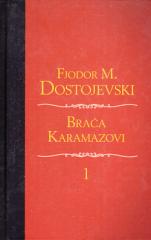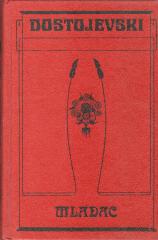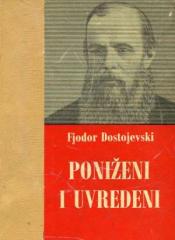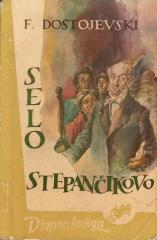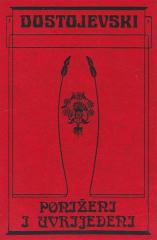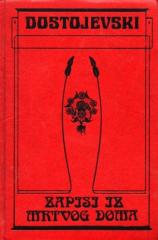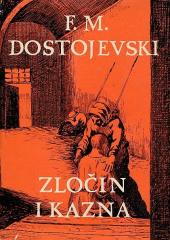Fjodor Mihajlovič Dostojevski
Fyodor Mikhailovich Dostoevsky (1821–1881) was one of the most important Russian writers and thinkers of the 19th century, known for the deep psychological analysis of characters and the philosophical themes in his works. He was born in Moscow and educated at the Military Engineering Academy in Saint Petersburg. He gained recognition with his first novel, Poor Folk (1846), but was soon arrested for his participation in the Petrashevsky Circle, a group of intellectuals who criticized the tsarist regime.
After being pardoned at the last moment from death row, he spent four years in a Siberian prison, which had a profound influence on his later writing. His best-known works include Crime and Punishment, The Idiot, Evil Souls, and The Brothers Karamazov. In these novels, he explores morality, faith, free will, sin, and redemption through strong and complex characters.
Dostoevsky was also active as a journalist and essayist, and struggled with personal problems such as epilepsy, gambling addiction, and financial difficulties. His contribution to world literature is reflected in his strong influence on existentialist philosophy and modern psychology.
He died in 1881 in Saint Petersburg, and his works remain indispensable in the world's literary heritage today.
Titles in our offer
Braća Karamazovi
The Brothers Karamazov is the last novel of the Russian genius Fyodor Mikhailovich Dostoyevsky, which he completed less than three months before his death.
Mladac
The Young Man (1875) by Fyodor Dostoevsky is a complex novel about coming of age, moral struggles, and social conflicts in 19th-century Russia. The novel, although less well-known, is a powerful portrayal of internal struggle and social tensions, with an
Poniženi i uvređeni
Prvi veliki roman u kome je Dostojevski počeo da istražuje neke teme ili likove koje će razviti u svojim kasnijim delima.
Selo Stepančikovo
"Selo Stepančikovo" je humoristički roman Dostojevskog, prvi put objavljen 1859. godine. Ovaj roman, koji se razlikuje od kasnijih, mračnijih djela autora, predstavlja satiričnu kritiku društvenih odnosa i ljudskih slabosti.
Ujakov san / Poniženi i uvrijeđeni
Oba djela odražavaju Dostojevskijevu ranu fazu, s fokusom na društvenu kritiku, psihološku analizu i moralne dileme, najavljujući teme njegovih kasnijih remek-djela.
Zapisi iz mrtvog doma / Zimske bilješke o ljetnim dojmovima / Zapisi iz podzemlja
Zapisi iz mrtvog doma (1860-1862) - roman temeljen na autorovoj robiji u Sibiru. Zimske bilješke o ljetnim dojmovima (1863) - esej s putovanja po Europi 1862. Zapisi iz podzemlja (1864) filozofski je roman o čovjeku razdiranom unutarnjim sukobima.
Zločin i kazna
Remek-djelo ruskog realizma i psihološkog romana, roman Zločin i kazna (1866.), preveden maestralno od Ise Velikanovića, duboka je priča o krivnji, iskupljenju i potrazi za smislom u svijetu punom patnje, gdje svaka duša nosi svoj teret.
